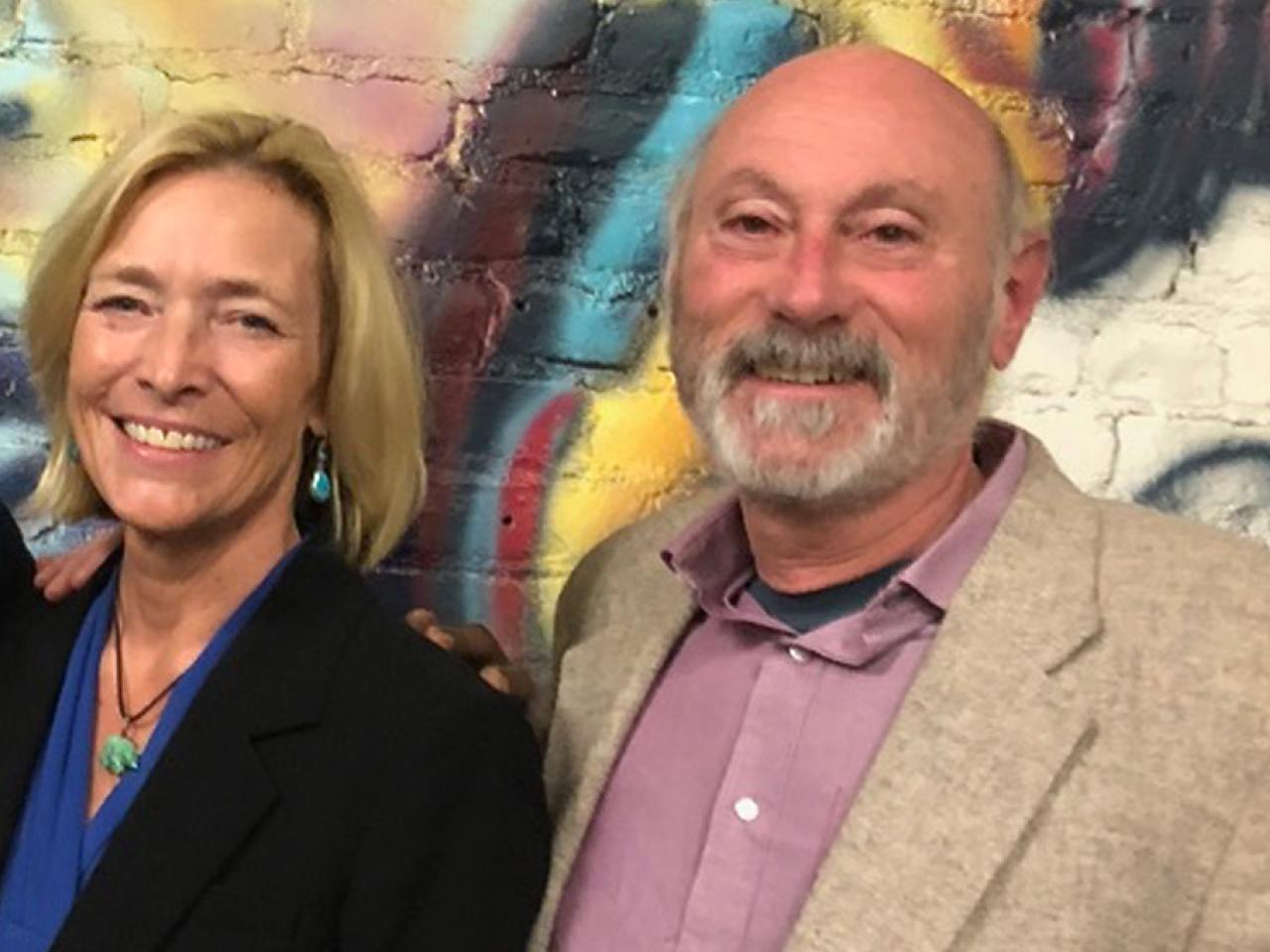Meet New Day: Maggie Stogner and Rick Stack

Maggie Stogner and Rick Stack.
We are the filmmaking team who created In the Executioner’s Shadow.
Maggie has been making documentary films on environmental and social issues for over 30 years. In 2018, she became the director for the Center for Environmental Filmmaking at American University in Washington, D.C. Rick has been researching and writing about the death penalty and criminal justice reform for several decades. He is a professor emeritus at American University’s School of Communication.
In the Executioner’s Shadow takes a deep dive into the criminal justice system through three narratives depicting personal stories of how the death penalty affects people in different and destructive ways. One is the heart-wrenching story of Vicki and Syl Sylvester who fight to spare the life of their daughter’s killer. Another is that of Karen Brassard, who struggles to define what justice means in the wake of the Boston Marathon bombing where she, her husband, daughter and best friend were all seriously injured. She wants the bomber to pay for what he did, yet she has a 19-year-old son the same age. The fulcrum of the film is the rarely heard story of an executioner, Jerry Givens. He was Virginia’s former chief executioner for 17 years and executed 62 inmates. Jerry discovers that he came within days of executing death row prisoner Earl Washington, when Earl was exonerated. Jerry remains haunted by having nearly taken the life of an innocent man. Interviews with experts such as Sister Helen Prejean, author of Dead Man Walking, and key information about the death penalty are woven in throughout the film.
In the Executioner’s Shadow is not a polemic. By showing multiple facets of the issue, we hope to encourage constructive dialogue and engage people who might not otherwise be open to discussion. Our approach is a model for bringing people who have vastly different perspectives together to discuss and resolve society’s most polarizing issues. It’s a catalyst for meaningful discussion about criminal justice reform that ultimately can move society toward a more compassionate place. Though few people have experienced the extremes of our criminal justice system, its consequences affect us all and define us as a society. Audiences are deeply moved by the film’s personal stories, and thought-provoking discussions follow every screening. The film has also played a key role in grassroots campaigns for criminal justice reform.